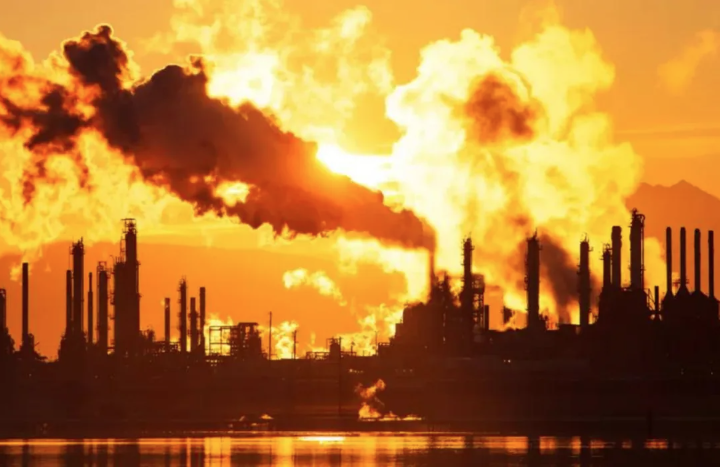The U.S. Environmental Protection Agency (EPA) lost part of its powers to reduce greenhouse gas emissions.

The landmark U.S. Supreme Court ruling represents a major setback for President Joe Biden’s climate plans.
He called it a “devastating decision,” but said the ruling would not undermine his effort to address the climate crisis.
The case against the EPA was brought by West Virginia on behalf of 18 other mostly Republican-led states and some of the nation’s largest coal companies.
- Attention WhatsApp and Telegram Users!
- A revolutionary decision in football! New offside technology officially adopted
The plaintiffs argued that the EPA did not have authority to limit emissions in all states.
These 19 states are concerned about the economic impact of their energy sectors being forced to stop using coal.
In a 6-3 ruling, the court sided with the conservative states and fossil fuel companies and agreed that the EPA did not have the authority to impose such extensive measures.
Attorney General Eric Schmitt of Missouri, one of the 19 plaintiff states, described the court’s decision as a “major victory…rolling back Biden’s job-killing EPA regulations.”
The court did not completely prevent the EPA from making these regulations in the future, but says Congress would have to clearly state that it authorizes this power.
And Congress has previously rejected EPA’s proposed carbon cap programs.
Environmental groups are deeply concerned about the outcome, as the 19 states that brought the case have made little progress in reducing their emissions, which is necessary to limit the impact of climate change.
The plaintiff states accounted for 44% of U.S. emissions in 2018, and since 2000 have only achieved a 7% reduction in their emissions on average.
“The Supreme Court’s ruling undermines EPA’s authority to protect people from climate pollution at a time when all the evidence shows we must take action with great urgency,” said Vickie Patton, general counsel for the Environmental Defense Fund (EDF), a New York-based NGO.
Significant loss
The ruling means that President Biden can now only wait for a policy change in the 19 states or a turnaround in Congress; otherwise, the U.S. is unlikely to achieve its climate goals.
This is a significant loss for the president, who took office on a promise to increase U.S. environmental and climate efforts.
On his first day in office, Biden re-entered his country into the Paris Agreement, the first legally binding global agreement on climate change targets.
And he committed the country to reducing its greenhouse gas emissions by 52% by 2030 from 2005 levels.
“While this decision risks damaging our nation’s ability to keep our air clean and combat climate change, I will not relent in using my legal authority to protect public health and address the climate crisis,” Biden said.
Governments around the world will surely take note of the Supreme Court’s ruling, as it will affect global efforts to address climate change. The United States accounts for nearly 14% of the world’s greenhouse gas emissions.
A United Nations spokesman called the Supreme Court decision “a setback in our fight against climate change,” but added that no single nation could derail the global effort.
In the U.S., this decision could also affect the EPA’s current and broader future regulatory responsibilities, including those for consumer protections, workplace safety and public health.
The ruling gives “enormous power” to the courts to weaken other regulations it doesn’t like, Hajin Kim, a law professor at the University of Chicago, told the BBC.
This is because judges can argue that Congress did not explicitly authorize the agency to do a particular thing, she added.




